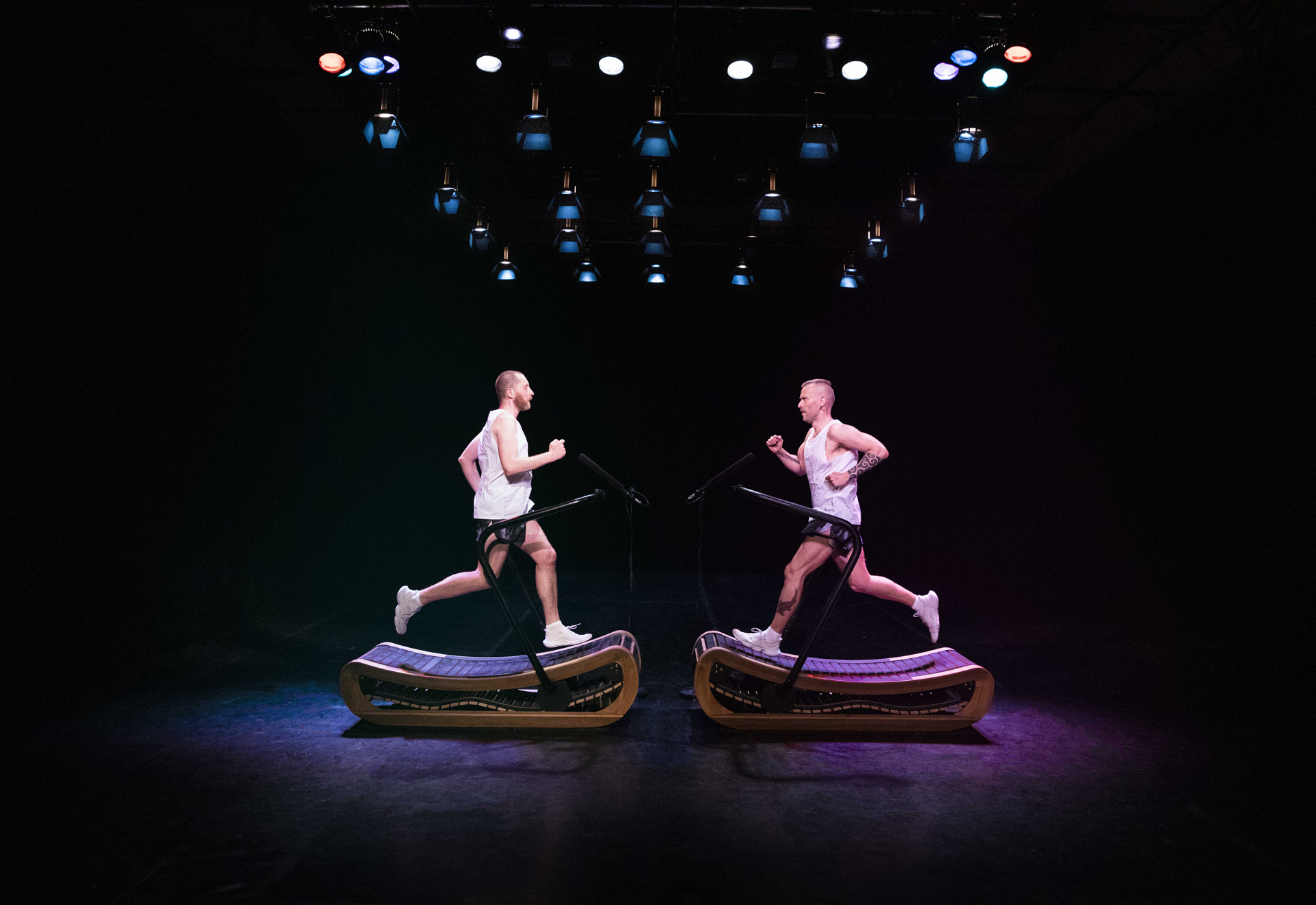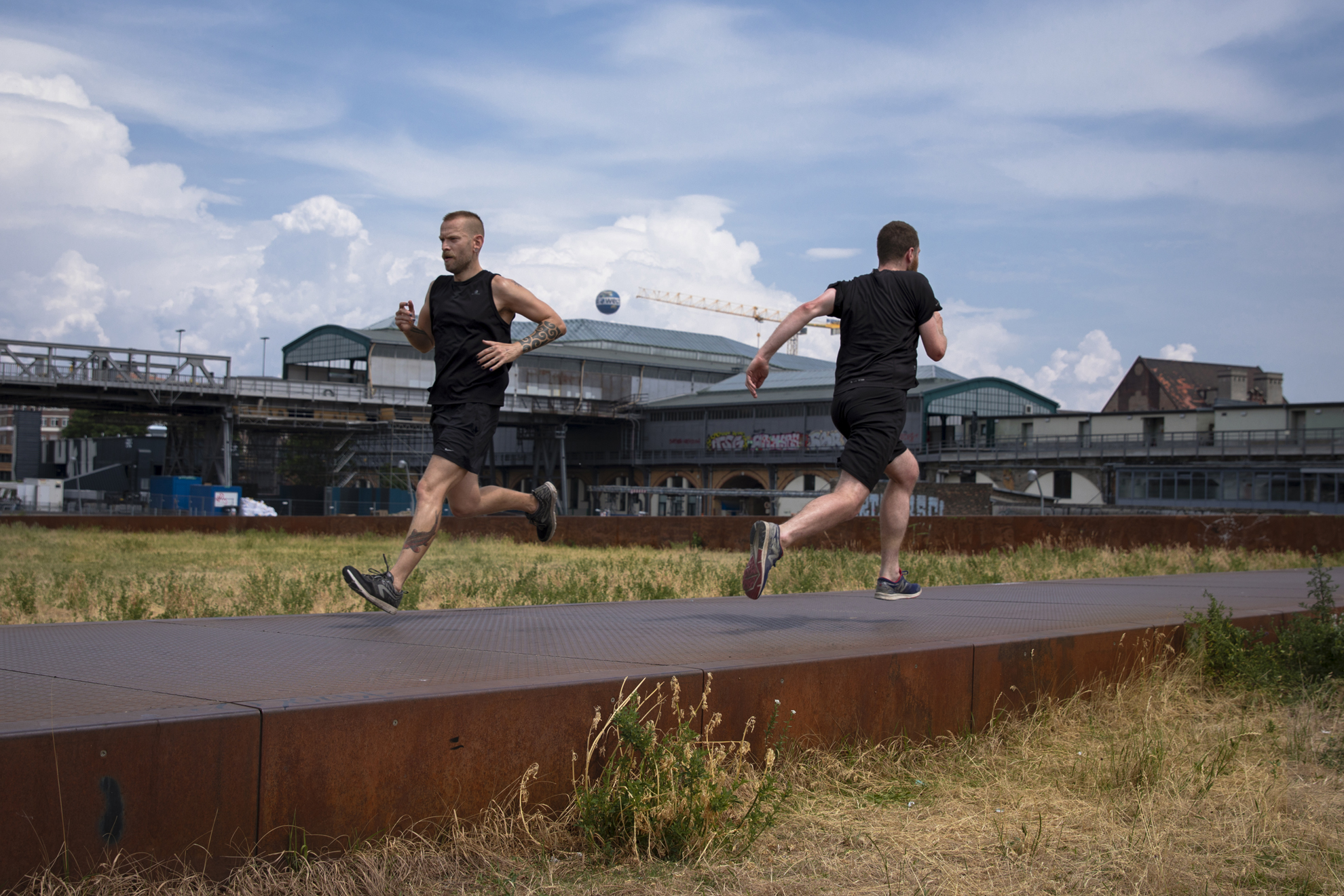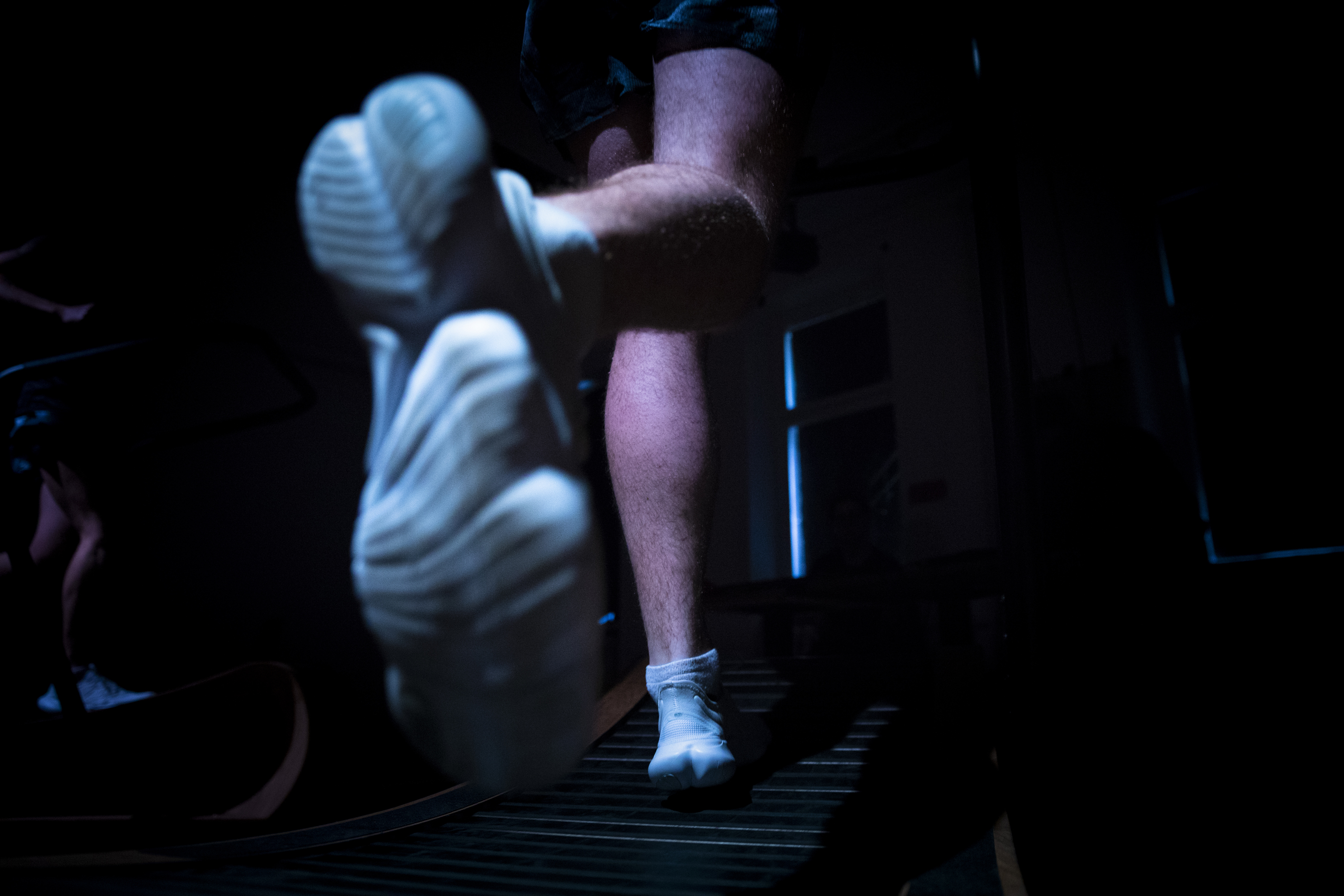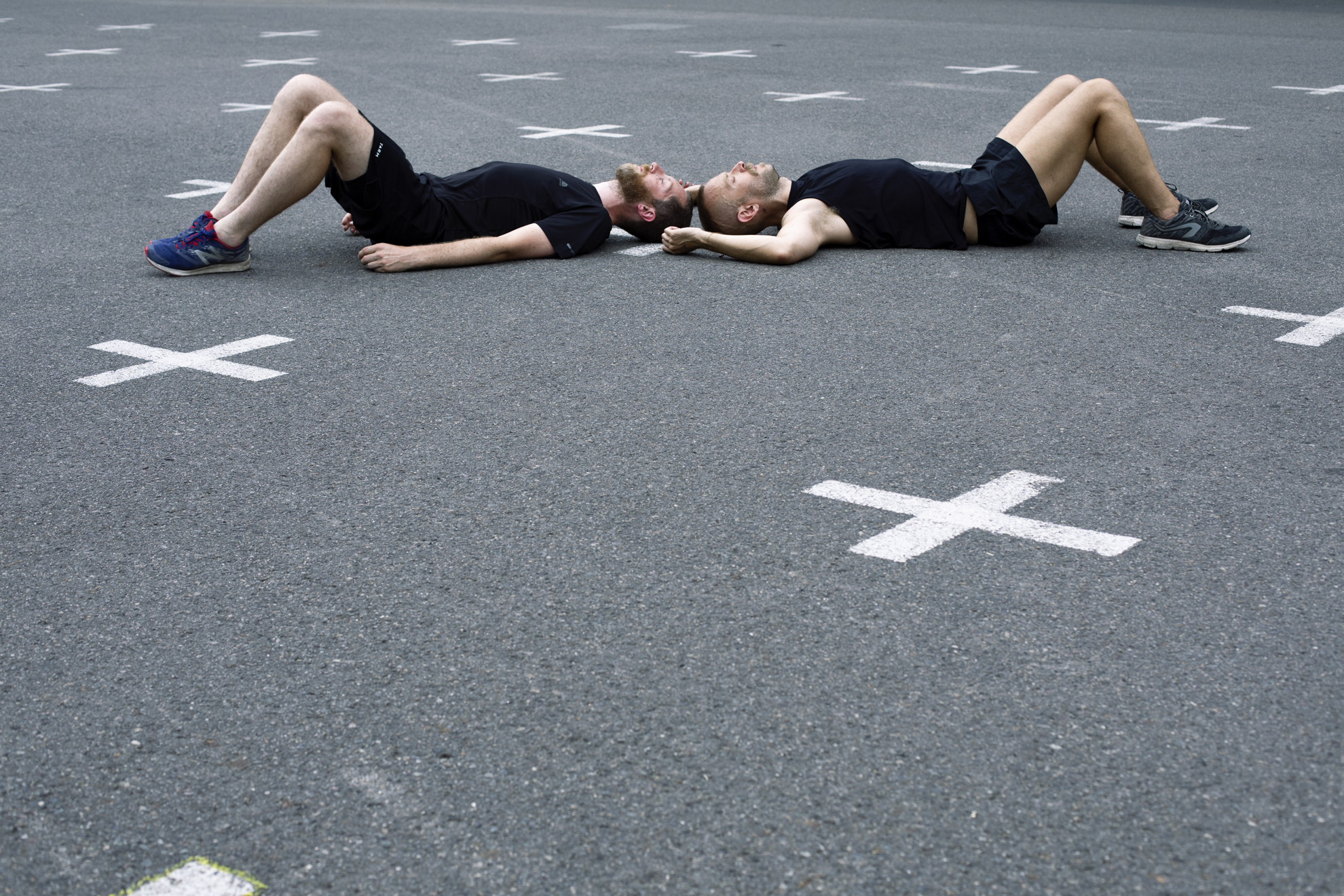Dogs of Love
A Queer Quantum Love Story
Format: Performance, Book
Premiere: 16 May 2019
Venue: Ballhaus Ost, Berlin
Language: English
Duration: 60 min
Script: Online PDF
Book: available from Circadian, Unbound, Books on the Move, ap bookstore
Premiere: 16 May 2019
Venue: Ballhaus Ost, Berlin
Language: English
Duration: 60 min
Script: Online PDF
Book: available from Circadian, Unbound, Books on the Move, ap bookstore
Direction, text, performance, design: Chris Gylee & Aslan
Light design: Elliott Cennetoglu
Sound design: Elie Gregory
Photography: Julian Hemelberg
Documentation film & trailer: Katelyn Stiles
Graphic design: Kruse & Müller
Press: Nora Gores, Kerstin Böttcher
Book publication: Circadian
Production management: ehrliche arbeit — freies
Funded by: Kulturbüro Einzelprojektförderung des Berliner Senats für Kultur und Europa
Kindly supported by: Archiv des Schwules Museums; NOHrD
To view the documentation film of Dogs of Love, please email us.
Light design: Elliott Cennetoglu
Sound design: Elie Gregory
Photography: Julian Hemelberg
Documentation film & trailer: Katelyn Stiles
Graphic design: Kruse & Müller
Press: Nora Gores, Kerstin Böttcher
Book publication: Circadian
Production management: ehrliche arbeit — freies
Funded by: Kulturbüro Einzelprojektförderung des Berliner Senats für Kultur und Europa
Kindly supported by: Archiv des Schwules Museums; NOHrD
To view the documentation film of Dogs of Love, please email us.
In Dogs of Love, queer performance collective ONCE WE WERE ISLANDS investigate the intimate connection between two people that goes beyond the bounds of time and space. From the starting point of their own real-life love story, two performers run in opposite directions through time, taking them on a virtual journey through pasts and futures populated with real and imagined stories of queer togetherness.
What defines love as queer?
What does it mean to be a part of a queer heritage?
What defines love as queer?
What does it mean to be a part of a queer heritage?
As the lovers run side by side, their footsteps echo like an eternal heartbeat. The air is filled with breath and sweat as they dive ever deeper. They revisit the moment they first met, the hours spent together, times of loneliness, crisis, and intimacy. Beyond birth and death, they find one another again and again in the life stories of individuals whose sexualities, relationships, and gender identities defy the constraints of heteronormativity.
Can we ever really leave someone we have been in love with?
Can we ever really leave someone we have been in love with?



CONVERSATION — May 2019
To live without history is to live like an infant, constantly amazed and challenged by a strange and unnamed world. Joan Nestle, A Restricted Country (1988)
Aslan: Instead of copy-pasting the press release, or reproducing some of the text for the show (which you can read in full on our website, by the way) we wanted to discuss what was important to us right now, four days before premiere. What’s on your mind?
Chris: I received an email from my father last week, I forgot to tell you. He sent me an update of his family tree and now you’re a part of it too. I don’t know if he would have ever expected that, but I think it’s logical for him since we got married a couple of months ago. It’s interesting that his genealogical work parallels the work we’ve been doing at the same time fantasising around our non-biological family tree.
Aslan: I can understand the parallel - your dad has been mapping blood and genes, while we’ve been uncovering a queer lineage. One that’s always being erased. We find ourselves asking these same questions, again and again: Who are our queer family? What is the nature of our connection? Who are our queer grandmothers? And, if time is queer too, are they to be found in the past or the future? Or both? If it’s not blood that connects us, perhaps it’s another kind of fluid altogether ...
Chris: What do you think has been gained from searching in the past and the future simultaneously? What do you think has happened to our bodies, as a result?
Aslan: I think there’s been a blurring. Dogs of Love is a fantastical queer ‘history’ that blurs fact with speculation and invention … but then, all histories combine these elements - it’s just that the dominant narratives are bolstered by a system that lends them legitimacy. There’s also been a blurring around the edges of self, and, by extension, of our bodies. My story has blurred with yours through telling your memories, and my self has blurred with all the other selves whose stories I am telling. Our sweat has also mingled with the dust on the floor and the oil on the machines. How about you?
Chris: I find the physical act of running through all of the memories - especially yours, and those gleaned from the biographies we’ve read and the fictional hybrids that we’ve conjured - produces a strange embodied proximity, a being intimately near, inside, and through all those other bodies. This is something I recognise now as being a much queerer action than I had anticipated. There are powerful heteronormative forces that we had to find strategies to deal with in this work. First, notions of long-term romantic commitment, and secondly, the chronological organising principle of time. How do you feel we resisted being sucked into these dominant paradigms?
Aslan: We had to reject the binaries they’re set up on. For example, there are narratives out there that say that commitment and seriousness ‘belong’ to hetero couples, while queers only bond through transience and hedonism. If we allow that to become a through-line in the work, we just strengthen it. Resistance is an act of constant un-hooking. Why can’t queer people be committed? Or romantic? And if they are, why do they have to give up openness and sex-positivity to do so? Why can’t all these things be unhooked from one another and just be what they are? Combined and recombined at will? When it came to dealing with time, while we couldn’t (or didn’t want to) discard the Arrow of Time altogether, we folded and pleated it, creating combinations and juxtapositions that subverted the chronological principle. Do you feel like Dogs of Love is a journey?
Chris: Yes. Or, maybe more specifically, it’s a ritual. I think the piece is a transformative act, and I notice that each time we run, it does things to us, and changes us. Our initial proposal was to attempt to run to opposite ends of the universe, and while this is, of course, impossible, trying to do so during this hour definitely takes us somewhere.






The above images include photographs by Julian Hemelberg and of the book Dogs of Love — Manifesting Queer Histories in the Body.
Dogs of Love is a ONCE WE WERE ISLANDS production in cooperation with Ballhaus Ost.
Additional thanks to: Kysy Fischer, Alexander Frank, Dominik Kuprecht, Elena Polzer, Ben Lechner, Eric Le Rouge, Swetlana Gorich, Toria Banks, Ale Marzotto, Jonas Maria Droste, Kate Gallon, Lea Martini, Devin Martini, Bugs, the Team at Ballhaus Ost, Sandra Klöss, Peter Rehberg and the team at the Schwules Museum, Colin Self, Giulia Messia, Beatrix Joyce, Mmakgosi Kgabi, Andreas Wiessner and Christian Wichura, Sailesh Naidu, Sanni Est, Diego Agulló and Dmitry Paranyushkin at Circadian, and All Our Queer Grandmothers.
Dogs of Love is a ONCE WE WERE ISLANDS production in cooperation with Ballhaus Ost.
Additional thanks to: Kysy Fischer, Alexander Frank, Dominik Kuprecht, Elena Polzer, Ben Lechner, Eric Le Rouge, Swetlana Gorich, Toria Banks, Ale Marzotto, Jonas Maria Droste, Kate Gallon, Lea Martini, Devin Martini, Bugs, the Team at Ballhaus Ost, Sandra Klöss, Peter Rehberg and the team at the Schwules Museum, Colin Self, Giulia Messia, Beatrix Joyce, Mmakgosi Kgabi, Andreas Wiessner and Christian Wichura, Sailesh Naidu, Sanni Est, Diego Agulló and Dmitry Paranyushkin at Circadian, and All Our Queer Grandmothers.